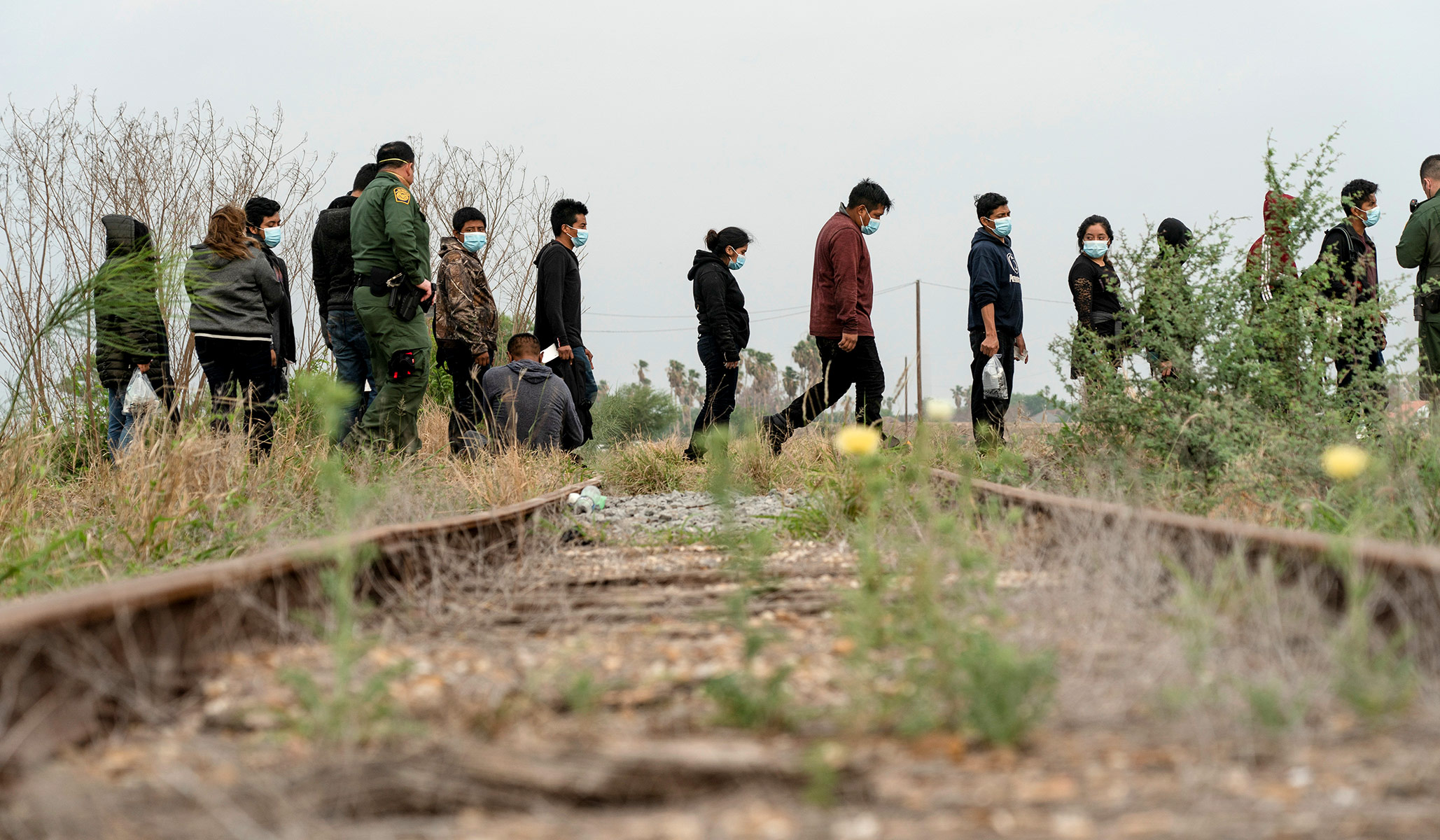Lawmakers in Congress are still trying to use their $3.5 trillion spending bill to grant amnesty to millions of illegal aliens — even after the Senate parliamentarian ruled that their initial proposal was ineligible for inclusion, due to the complex rules surrounding the filibuster-proof budget “reconciliation” process that Democrats are using to pass their agenda on a strict party-line vote.
Their latest strategy involves updating a registry to allow illegal aliens who arrived after 1972 — the current registry cutoff — to seek green cards. Depending on the new date they set, this change could grant legal status, work permits, and ultimately citizenship to millions of people. And if the parliamentarian also rules against this “Plan B,” senators such as Dick Durbin (D., Ill.) have already promised to try plans “C and D.”
As a naturalized citizen who jumped through the legal immigration system’s many hoops, I find their efforts — and their persistence — deeply offensive. Amnesty would send the wrong message to millions of people trying to immigrate the right way. And it’d also burden our safety-net programs and harm our working class.
I came to America from Hong Kong, which is now, sadly, controlled by the Chinese Communist Party, and lived here for 13 years before beginning the naturalization process. I’m now a proud U.S. citizen, and part of that pride comes from knowing I did it the proper, legal way.
But evidently, it was all unnecessary. If Congress passes this amnesty, people who waltzed across the border would receive the same benefits as legal immigrants like me who patiently followed the rules.
That’ll only incentivize more illegal immigration, as people conclude — not unreasonably — that they’re better off violating our laws now and waiting for a future amnesty.
This is no mere hypothetical. Customs and Border Protection just released August statistics on encounters with illegal immigrants — showing that Border Patrol agents apprehended nearly 80,000 adults and children in “family units,” the second-highest recorded number ever. They also caught roughly 18,500 unaccompanied minor children, which is the third-highest level recorded. That was on top of the 97,000 single adults they detained.
All this during a scorching summer, when border crossings normally drop due to the extreme — sometimes lethal — heat. The latest images out of Del Rio, Texas, with an estimated 15,000 migrants waiting to cross the border, recently grabbed the media’s attention. But the same thing has been happening on a smaller scale across hundreds of miles of the border.
Amnestying millions of illegal aliens would also burden already-strained social programs.
Take Social Security and Medicare Part A, which covers hospital stays.
The average illegal alien granted amnesty would cost those retirement and insurance programs about $129,000 more than he contributes via payroll taxes over his lifetime. Multiply that by the 8 million people possibly included in this amnesty, and taxpayers will be on the hook for roughly $1 trillion in additional liabilities.
It’s clear that amnesty would effectively bankrupt our beleaguered entitlements.
Amnesty represents a looming disaster for American workers too, especially those on the lower rungs of the socioeconomic ladder. A myth persists that illegal aliens do the jobs that nobody else will.
Yet in reality, illegal aliens constitute a minority of every single occupational category identified by the Department of Labor, even in stereotypically immigrant-heavy occupations such as agricultural field workers and manicurists.
There is simply no job that native-born workers and naturalized citizens won’t do. But if they’re forced to compete with millions of newly amnestied workers, it’ll be harder for citizens to bargain for better wages and benefits.
It’s basic supply and demand. Over a dozen credible, peer-reviewed studies have all found that an influx of foreign workers drives down wages. And perversely, less-skilled and minority workers — including many naturalized citizens — tend to suffer the most drastic wage effects.
It’s disgraceful that Congress is even considering an amnesty.
Letting lawbreakers cut in front of people who are still patiently waiting to immigrate to this great country would incentivize more criminal behavior, harm American workers of all ethnicities and national origins, and tear holes in our social safety net.
PHOTO GALLERY: Border Crisis in Texas
